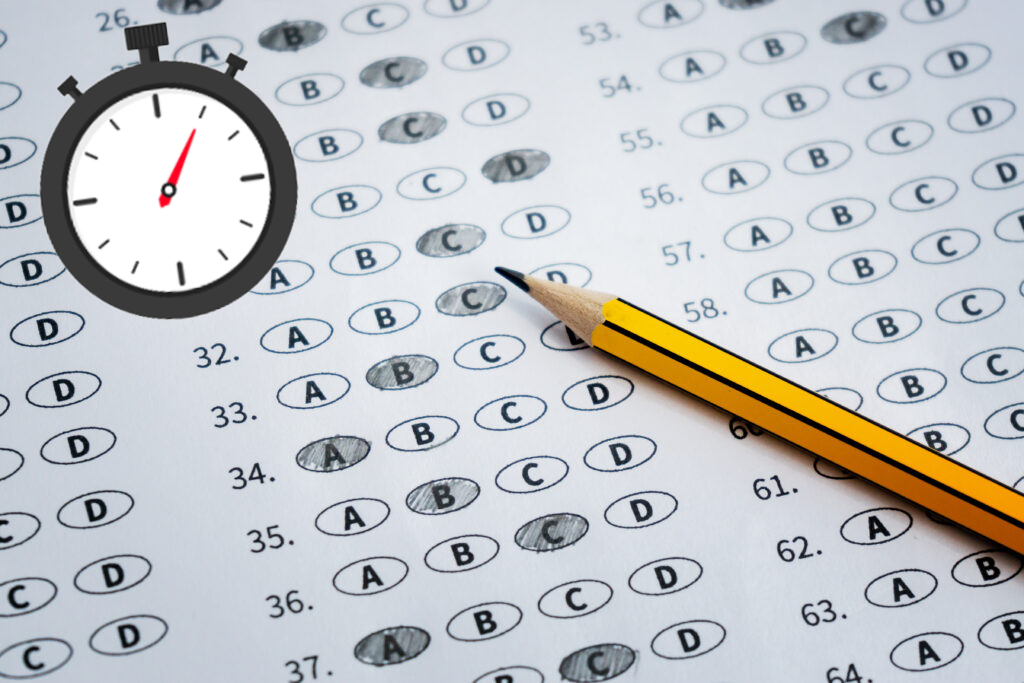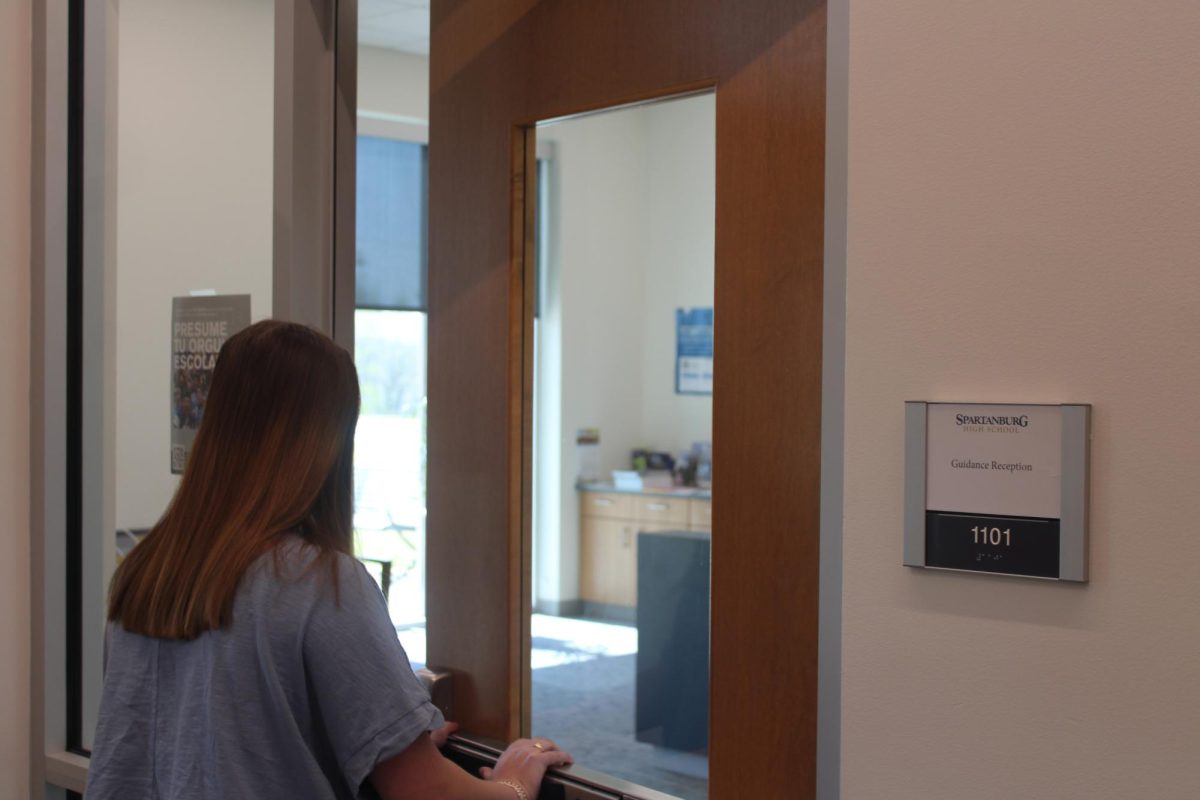Standardized tests have been used in American education systems since the mid-1800s. In the early 2000s, testing usage skyrocketed, and it became a general way for schools to measure students’ accomplishments in school. With the No Child Left Behind education reform, which expanded state-mandated standardized tests, American education became measured by how well students performed on these tests.
Along with these new tests came the addition of another factor, the timer. Tests began to be timed for reasons of administrator convenience and student pacing. Fast forward to today and almost all standardized tests and some non-standardized tests are timed in schools across America. This generation of kids and teens has grown up knowing that if they didn’t answer all the questions in time, they would receive fewer points on their test than their peers who did finish.
Timed tests have developed controversy over time because of new information on whether they’re the best for the student’s mental health. According to Stanford math professor Jo Boaler, timed tests cause anxiety and long-term fear of subjects (specifically math) in students. This causes math anxiety which is instigated by timed tests in math classes. Math anxiety often leads to low mathematical achievement, math avoidance and negative experiences with math throughout students’ lives. It is disclosed in Boaler’s study that children as young as first-grade experience some types of math anxiety and that it is exacerbated as students start harder math classes.
Malachi Watts (11) thinks that timed tests don’t allow for students to reach their full potential on tests.
“I think timed tests are unfair because they hinder the ability to perform at the highest level and effectively answer the questions given during the tests,” Watts said.
Another reason that timed tests can be seen as “unfair” is that they are biased towards slow test takers. While some students may be fast test takers, according to “Education Weekly,” speed is less of a sign of intelligence and more of an ability to do things without thinking about them. Many tests ask students to apply knowledge that they have just learned. This causes the learning process to regress because students forget key information they have learned because of anxiety and stress.
Ben Neely (10) thinks that timed tests are unfair to students participating in high-level tests.
“I think that important tests like the PSAT, SAT, ACT and even AP tests shouldn’t be timed because students should have the opportunity to take their time on these important tests so that they can score as high as possible,” Neely said.
Some of the most important tests that high school students take in their entire lives, the SAT, ACT and PSAT, are timed tests. This adds extra pressure to students who are already stressed out because of the test they are taking. These tests are less equitable to high schoolers with documented disabilities and although these students can get accommodations for their learning barriers, it is a disadvantage to students with undocumented disabilities or learning disorders. Therefore, if these standardized tests did away with the timer, students would score better on these tests according to a study done by UFC Education.
Alison Little, an AP Psychology and Seminar teacher, thinks that timed tests create barriers to some students.
“Tests are used to measure various things; for instance, an AP test measures achievement (helps show mastery of material in a subject area) whereas SAT/ACT measures aptitude (helps predict future performance). Standardized test items are vetted and are under much larger scrutiny than a teacher-made test. Generally, I do believe the timing of these tests is fair. I say this after being a student who had to overcome a great deal of test anxiety and went through test assessment coaching on how to increase my reading speed and comprehension levels. The key is to learn the “language” of the test, how it will be scored, and knowing what I need to do to master the material and execute it,” Little said.










